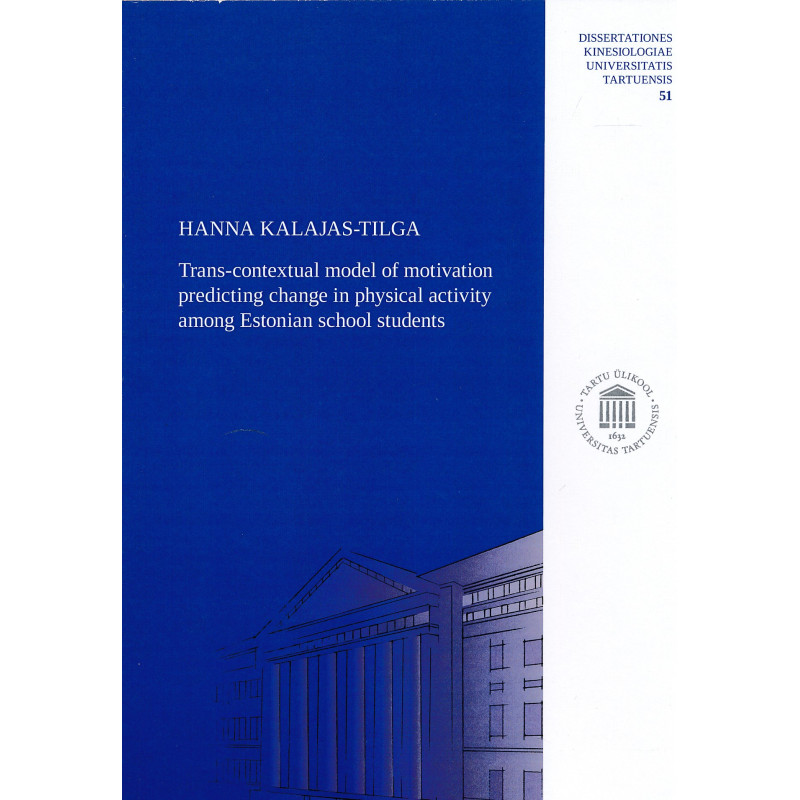



Tartu : University of Tartu Press, 2022
118 p. : ill.
ISBN: 9789949038459
Dissertationes kinesiologiae Universitatis Tartuensis, 1406-1058 ; 51
Paperback new dissertation.
Despite lots of evidence regarding the positive impact of physical activity most adolescents do not meet the recommended 60 minutes of moderate-to-vigorous physical activity a day on average per week. Studies have found that adolescents’ physical activity is predicted by autonomy support from their physical education teachers, parents, and peers, which, in turn is related to adolescents’ autonomous motivation and intentions toward physical activity which is also related to their self-reported physical activity. Trans-contextual model of motivation forms the basis of these predictions. The current doctoral thesis tested the trans-contextual model of motivation among Estonian school students over different time periods – one month and one year. Students’ leisure-time physical activity was evaluated both with self-reported measures and accelerometers. Furthermore, relationships between different motivational regulations and accelerometer-based physical activity were investigated. The results demonstrated that the trans-contextual model is stable over time both over a one-month and a one-year time period. These results are in line with previous studies adding an important contribution by testing the constructs of the model over longer time periods. Although, no relationship emerged between intentions and accelerometer-based physical activity after lessons, there was a positive relationship between intrinsic motivation and daily accelerometer-based physical activity. This confirms once again the importance of providing autonomy support in physical education lessons, which promotes the development of adolescents’ intrinsic motivation toward physical activity through satisfying their basic psychological needs. In conclusion, the results of the conducted research emphasize the importance of providing autonomy support from physical education teachers, parents, and peers in the development of physically active lifestyle of adolescents.